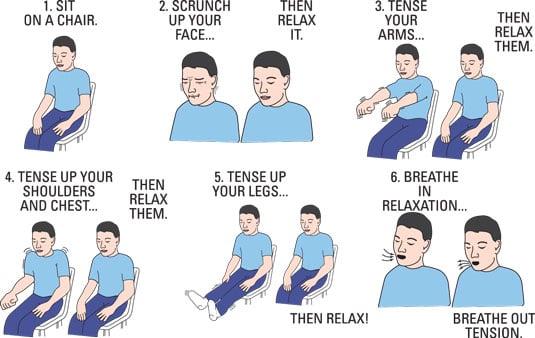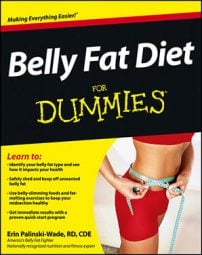Progressive muscle relaxation, a stress-relieving technique, sounds complicated, but it’s actually very simple. It involves focusing on each muscle group and slowly tensing and relaxing each muscle to help you calm and decompress. This technique forces you to focus on the difference between the tense muscle and the relaxed muscle, helping you become more aware of physical sensations and thus able to relax and release tension.
Here’s how you do it:
Tense the muscles in your toes, hold the tension for 5 to 10 seconds, and then relax the muscles for 30 seconds.
Move on to your legs, following the tension and relaxation directions in Step 1 for your calves, quadriceps, and even glutes. Slowly work your way up your body.
Practice tensing and relaxing your muscles all the way to your shoulders, neck, and even your face until you reach the top of your head.
 Another way of doing progressive muscle relaxation: in reverse order
Another way of doing progressive muscle relaxation: in reverse order
One of the best ways to reduce stress (and, of course, shrink your belly!) is through exercise. Here’s why exercise is so important:
It improves the flow of blood to your brain. This increased blood flow brings oxygen and energy (in the form of sugar) to your brain.
It fosters clear thinking. When you’re concentrating intensely, the neurons in your brain start working even harder than normal. These neurons then produce increased amounts of waste products, which, if built up, can cause you to suffer from foggy thinking. By exercising, however, you speed the flow of blood through your brain, moving these waste products faster and allowing your brain to function at its peak.
It releases endorphins into your bloodstream. This release gives you a feeling of happiness, positively affects your overall sense of well-being, and helps reduce overall stress.
So what’s the best exercise for stress reduction? A study out of the University of Missouri-Columbia found that high-intensity exercise was the best way to reduce overall stress and anxiety levels. This includes exercises like interval training.

